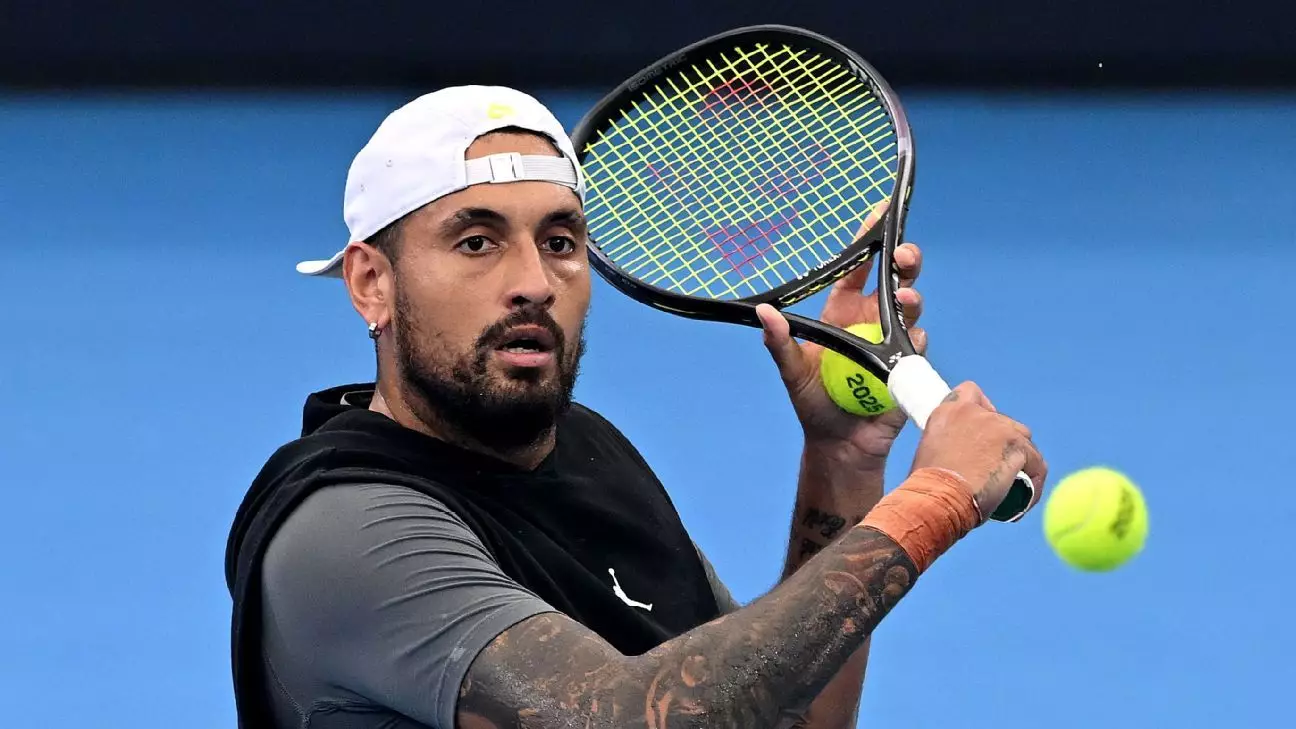Tennis, a sport synonymous with discipline and sportsmanship, has recently found itself embroiled in controversy due to doping allegations involving two of its top athletes: Jannik Sinner and Iga Swiatek. Veteran player Nick Kyrgios has stepped into the spotlight, raising his voice against these violations and igniting a critical discourse on integrity within the sport. His vocal condemnation serves not only to challenge the individuals involved but also to question the integrity of the sport as a whole.
Jannik Sinner and Iga Swiatek, both of whom have ascended to the pinnacle of tennis stardom, are under scrutiny due to allegations of doping. Sinner faced two positive tests for an anabolic steroid earlier this year but escaped suspension, as the International Tennis Integrity Agency (ITIA) cleared him of intentional wrongdoing. Swiatek, on the other hand, accepted a month-long suspension after testing positive for trimetazidine, a substance banned due to its ability to enhance endurance.
Kyrgios’s reaction was sharp and pointed, suggesting that the implications of these offenses cast a “disgusting” shadow over the sport. He noted that the simultaneous violations from two players who once held the No. 1 ranking reflect poorly on tennis and contribute to a growing narrative of mistrust and skepticism surrounding the integrity of professional athletes. This could not come at a worse time for a sport already wrestling with issues of publicity and marketability.
In his recent remarks, Kyrgios framed the discussion around doping violations through the lens of personal integrity and resilience. Having been sidelined due to injuries, he emphasized that he has never considered doping, despite the tempting allure of recovery shortcuts. He expressed a profound respect for the sport, stating that resorting to performance-enhancing drugs is incongruent with his identity as a player.
Kyrgios doesn’t shy away from the fact that many players, facing similar pressures, might be tempted to cheat. Yet, he firmly maintains that the essence of competition should be the true portrayal of skill, dedication, and hard work. His sentiments resonate deeply in a time when shortcuts and unethical behaviors could undermine the sacrifices athletes make for their craft.
Kyrgios’s comments also underline a demand for increased transparency within the sport. He questioned the effectiveness of current protocols and the timelines associated with the investigations into doping violations. For instance, Sinner’s argument that his physiotherapist contaminated him with a banned substance raises eyebrows regarding professional accountability. Kyrgios’s disbelief regarding Sinner’s team maintaining their association even after the doping incident reflects a deeper concern about the lack of immediate accountability in sports organizations.
This situation invites a broader conversation about the structures in place meant to protect the integrity of tennis. If the standards for accountability are perceived as unequal or lenient, the implications could be detrimental to the sport’s reputation and affect the younger generation of aspiring athletes.
Although Kyrgios is no stranger to criticism for his outspoken nature and emotional displays on-court, he remains undeterred in his advocacy for the sport’s integrity. He articulates that while emotions may run high during competition—leading to racquet throwing or vocal outbursts—these actions pale in comparison to the act of cheating, which undermines the very foundation of sportsmanship.
By positioning himself as a vocal advocate against doping, Kyrgios challenges others in the tennis community to step up and address these issues openly. His comments echo a fundamental truth: for sports to be meaningful, they must be grounded in fairness, resilience, and respect for the rules.
Ultimately, Kyrgios’s fierce condemnation of doping violations illuminates significant concerns that the tennis community must address. The integrity of the sport hangs in the balance, and strong measures must be adopted to uphold its reputation. Encouraging open dialogue about doping, reinforcing the importance of accountability, and re-evaluating current regulations could help restore trust among athletes and fans alike. Moving forward, the sport must collectively commit to preserving its foundational values, ensuring that true talent and hard work reign supreme.

